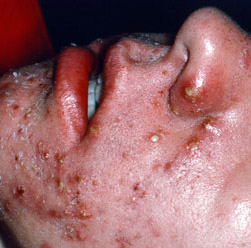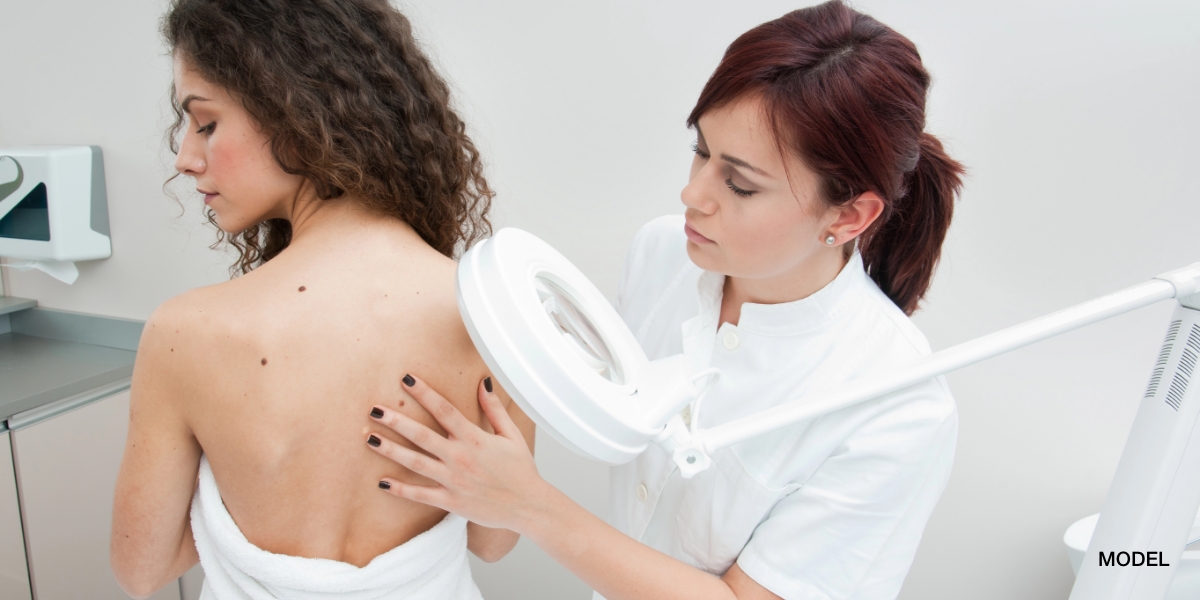Gram negative folliculitis is a rare complication of long term systemic antibiotic treatment of acne that I occasionally encounter in both my Conroe dermatology and Woodlands dermatology offices as only 4% of all patients treated with antibiotics for acne develop this condition. Prior to antibiotic therapy, the normal bacterial flora of the nose consists of Staph aureus and diptheroids with only one percent of all nasal bacteria being gram negative bacteria such as enterobacteria. After several months of antibiotics for acne, the flora can change and gram negative bacteria can populate up to 4% of the flora. Usually, this does not cause a problem unless the gram negative bacteria leave the nasal cavity and infect other areas of the face. My clinical suspicion for gram negative folliculitis is high when a patient with a history of taking doxycycline or another long term antibiotic suddenly has a flare up of their acne that is more cystic and pustular in nature. The diagnosis can be confirmed with a culture of a pustule. Gram negative bacteria prefer moist environments so patients with oily skin are especially prone to this infection. Bactrim and penicillin antibiotics can also be used to treat gram negative folliculitis.
October 2, 2010




